
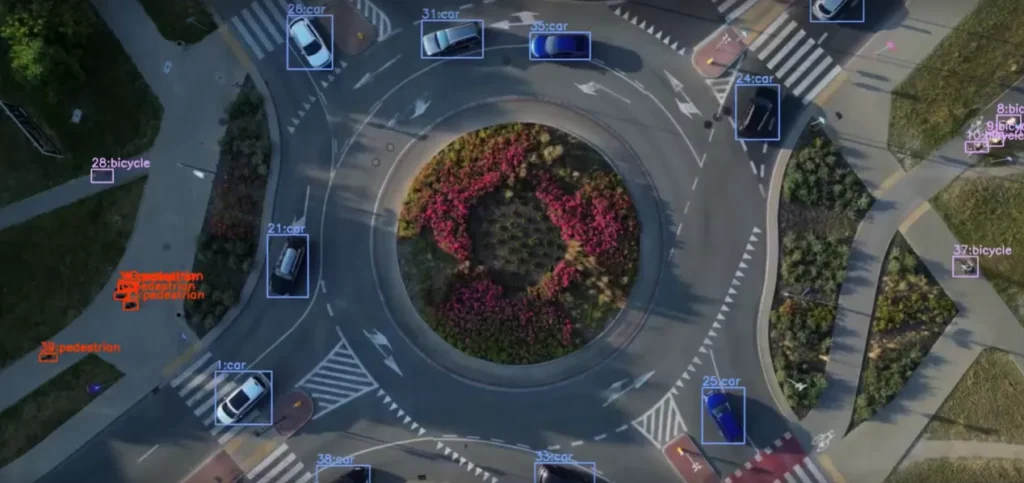





From EVs and batteries to autonomous vehicles and urban transport, we cover what actually matters. Delivered to your inbox weekly.
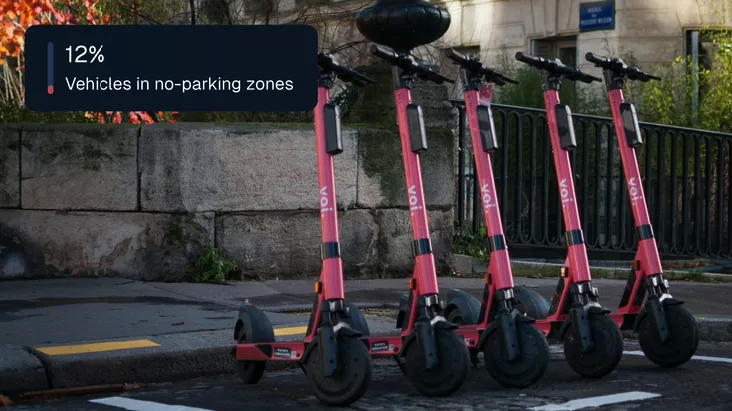
Every city has the same problem. There are too many vehicles, not enough space. The curb has become prime real estate. Delivery vans, rideshares, scooters, and cyclists are all fighting for a few meters of asphalt. It’s where commerce, commuting, and chaos meet.
Yet despite its importance, most cities still manage curbs the old way – static signs, paper permits, and spreadsheets that rarely match what’s happening on the street. As e-commerce and shared mobility explode, that approach doesn’t hold up anymore.
That’s where Populus comes in. The San Francisco–based startup helps cities see, manage, and price the curb in real time. Instead of tickets and towing, Populus gives them dashboards and data to turn curb chaos into something measurable, predictable, and profitable.
In short, Populus is helping cities finally understand one of their most overlooked assets and making sure it works for everyone who depends on it.
Populus began in 2018 with two transportation scientists who knew the data gap between cities and mobility companies was growing fast. Dr. Regina Clewlow, an MIT-trained researcher who spent years studying shared mobility, had seen how private operators were drowning in data while cities were flying blind. Dr. Fletcher Foti, a UC Berkeley urban planner and data scientist, had already built software that simulated entire transportation networks.
Together, they decided to even the playing field.
From their base in San Francisco, they built Populus with one goal – help cities understand what’s happening on their streets in real time. If companies like Uber and Bird could track every ride and every stop, why couldn’t city planners do the same and use that insight to design smarter policies?
That question became the foundation for Populus, a platform that gives public agencies the same visibility, precision, and intelligence that private mobility giants have relied on for years.

Cities are awash in mobility data. GPS pings from scooters, delivery vans, car shares, and bikes – but most of it lives in silos or gets lost in noise. Populus built its platform to make sense of that.
This is where cities start. The Mobility Manager pulls in real-time data from every kind of shared fleet – scooters, bikes, car shares – and turns it into something usable. Instead of millions of GPS points, city planners see clear maps of how streets and parking zones are being used.
The platform shows where demand is high, which neighborhoods are underserved, and whether operators are following local rules. Cities can cap vehicle counts, enforce parking boundaries, or charge per trip automatically, all from one dashboard.
It’s built on open standards like MDS (Mobility Data Specification) and GBFS, meaning any operator can plug in without custom integrations. That openness helps cities move faster and keeps everyone working with the same data source – operators, planners, and regulators alike.
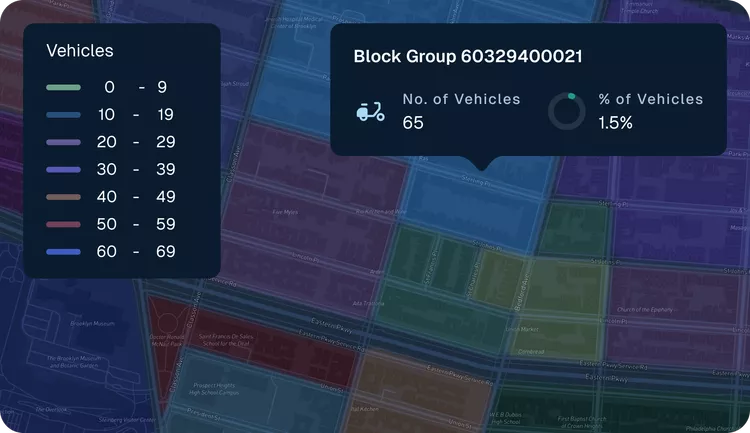
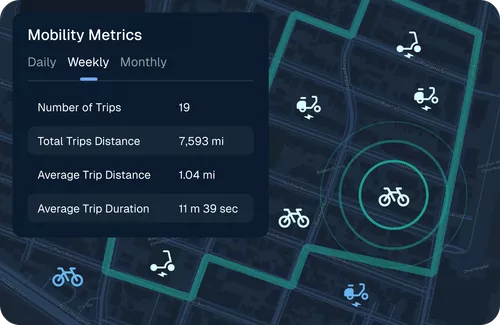
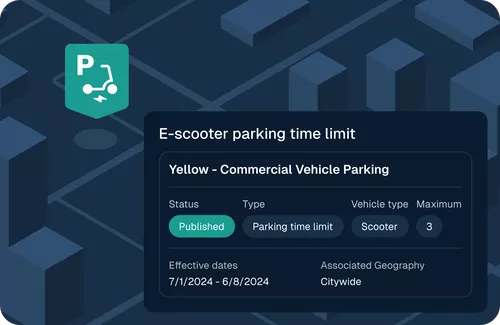
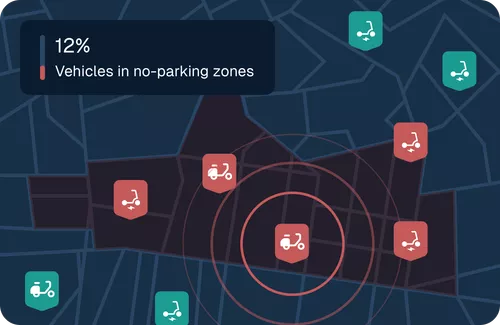
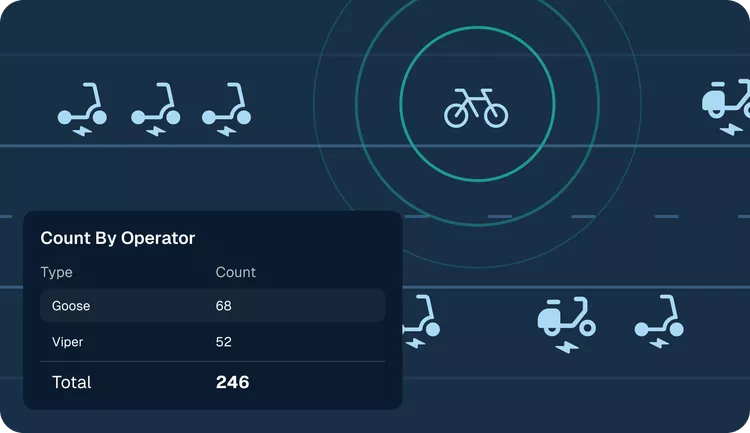
If Mobility Manager helps cities understand movement, the Curb Manager helps them understand space. It digitizes every curb segment, traffic sign, and rule into a single, searchable map. Using the Curb Data Specification (CDS), Populus translates all that analog information – “no parking on Tuesdays,” “15-minute loading zone” – into a living database.
Once those curbs go digital, cities can do things they never could before. They can launch smart loading zones that bill fleets by the minute, test dynamic pricing for busy streets, or issue digital permits in just minutes. And all that happens without new hardware or sensors.
In cities like Oakland and Miami, these tools have already replaced meters and manual permits with real-time, software-driven curb management.
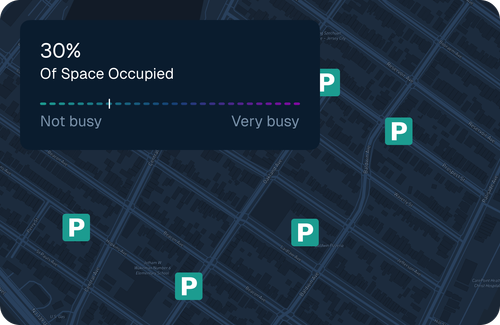
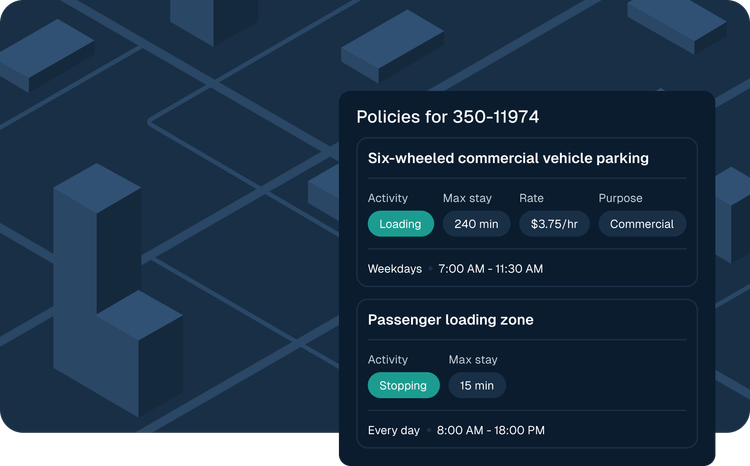

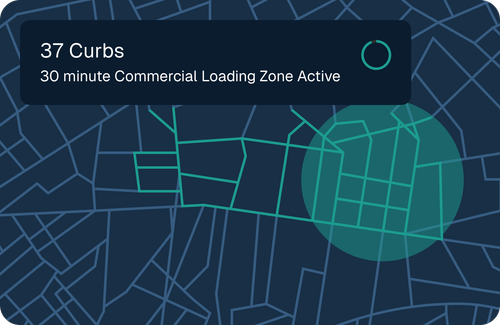
Most mobility software is built for companies, but not for the cities that host them. Populus flipped that model. It focuses on infrastructure, not vehicles, and gives governments the same intelligence tools the private sector has enjoyed for years.
It’s a platform shaped by transportation researchers, not generic SaaS thinking – built to help cities collect data – and act on it.
Populus’s ideas aren’t stuck in PowerPoints or pilot decks. They’re already shaping how cities manage space on the ground. Today, more than 100 cities use Populus to run their mobility and curb programs, from Chicago to Tel Aviv.
In Tel Aviv, the platform processes around 600,000 scooter rides every month, helping planners decide where to expand bike lanes and how to balance shared-mobility parking. And the result – data-backed infrastructure planning in a city once known for curb chaos.
In Oakland, Populus powers the city’s smart loading zones, digital parking spaces for delivery vehicles. Instead of installing new hardware or sensors, fleets share their GPS data and pay about $0.03 per minute through Populus’s permit system. No meters or tickets needed.
Further east, Miami used Populus to digitize its commercial loading zones across two busy districts. The project was so effective it earned the 2024 IPMI APEX Award for innovation in mobility tech.
Seattle took it a step further, becoming the first U.S. city to launch a public Curb Data Specification (CDS) API using Populus’s software. This was a major step toward open, machine-readable parking rules.
Meanwhile, New York City and Hoboken are using Populus to build live digital curb inventories, paving the way for automated enforcement and dynamic pricing.
Each deployment moves cities closer to a future where curbs aren’t static, painted lines, but flexible, data-driven systems that adapt to how people and goods actually move.
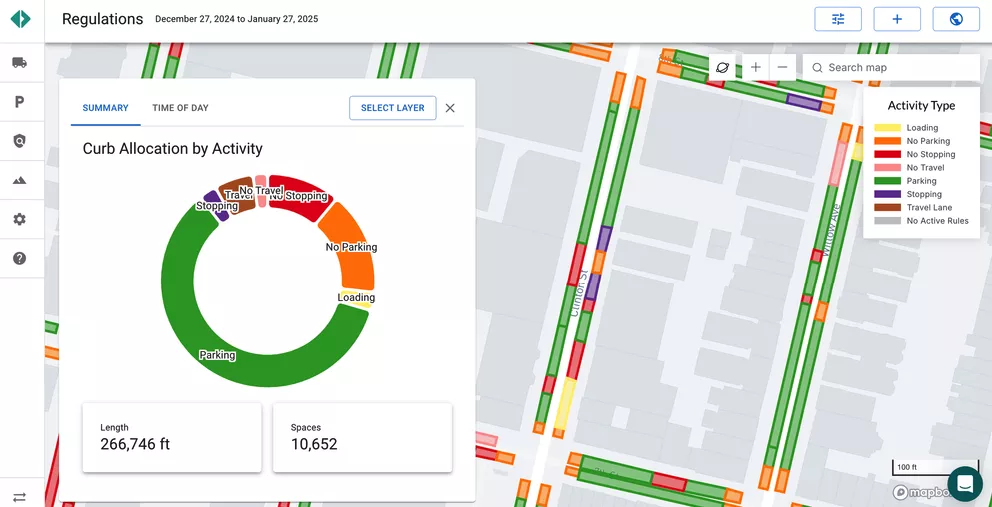
Populus isn’t the kind of startup chasing unicorn headlines or hypergrowth. Its success depends on trust, the kind that takes time to build with public agencies. Since launching, the company has raised around $19 million, including an $11 million Series A in 2022 led by Zero Infinity Partners and Climactic Ventures, with backing from Comcast Ventures, FootPrint Coalition Ventures, Storm Ventures, and Precursor Ventures.
But funding is only part of the story. Populus has also earned the confidence of organizations that rarely partner with startups. It’s supported by the U.S. Department of Transportation, EU AI4Cities, and Sourcewell, all of which see its platform as critical infrastructure for modern mobility management.
Rather than growing through aggressive expansion, Populus scales through collaboration. Every new city partnership adds more real-world data, more validation, and more momentum.
Populus runs on a simple model – cities pay for clarity.
Its software is licensed as a SaaS platform to transportation departments, parking authorities, and other public agencies. Each client gets secure access to Populus dashboards, APIs, and integrations – all the tools that help them manage fleets, curbs, and regulations in real time.
Most contracts are annual subscriptions, often bundled with setup and data services. In some cases, Populus also helps cities generate curbside revenue – like Oakland’s pay-per-minute delivery zones – creating a direct return on the platform’s use.
To make adoption easier, Populus joined Sourcewell, a cooperative procurement network that lets U.S. cities skip long RFP processes and onboard the platform immediately. It also works through pilot programs backed by grants from the U.S. Department of Transportation or initiatives like the Transit Tech Lab, proving value before scaling.
And unlike most mobility tech companies, Populus doesn’t sell or monetize user data. Its revenue comes entirely from helping cities use their own data better, making public space more efficient, transparent, and financially sustainable in the process.
In mobility tech, most startups race to track vehicles, not the spaces they use. Populus flipped that logic. Instead of following the next scooter or delivery robot, it focused on the few meters of curb that every trip depends on.
That focus gave Populus a head start. While companies like Vianova, Fluctuo, and Blue Systems visualize fleet data, Populus connects it directly to curb rules, permits, and pricing, creating a full feedback loop between policy and real-world movement.
It also helped shape the Curb Data Specification (CDS), the open standard now adopted by dozens of cities to make curb data machine-readable. In other words, Populus didn’t just build software on top of the standard, it helped write the standard itself.
Today, its platform runs everything from trip tracking to automated billing. Cities can see where scooters are parked, issue digital permits, and even charge fleets by the minute. All from the same dashboard.
That combination of scope and specialization makes Populus something rare in the industry. A true operating system for curb space. It’s not trying to reinvent urban mobility. It’s quietly building the layer that keeps it all running.
Populus has come a long way from its early dashboards and pilot projects. The platform now supports over 100 cities and processes more than 300 million shared-mobility trips, turning raw GPS data into policies that shape how streets actually work.
And the next phase is – automation. Populus is building tools for dynamic curb pricing, congestion management, and automated permitting.
That means cities won’t just analyze curb data, but they’ll act on it in real time by adjusting fees, opening or closing loading zones, and prioritizing space for electric vehicles or shared fleets.
Under the AI4Cities program, Populus is also expanding across Europe with pilots in Helsinki, Tallinn, and Stavanger, using its software to help cities reduce emissions through smarter infrastructure planning. The company’s data science team is adding modules for micromobility safety and CO₂ tracking, giving cities a clearer picture of how curb use ties into climate goals.
The long-term vision is ambitious but concrete. They aim to make every curb a programmable asset that can adapt to new forms of transport, from delivery robots to autonomous shuttles. With Populus quietly powering the background, the next generation of city infrastructure could be managed like code – responsive, flexible, and built on real-time data.
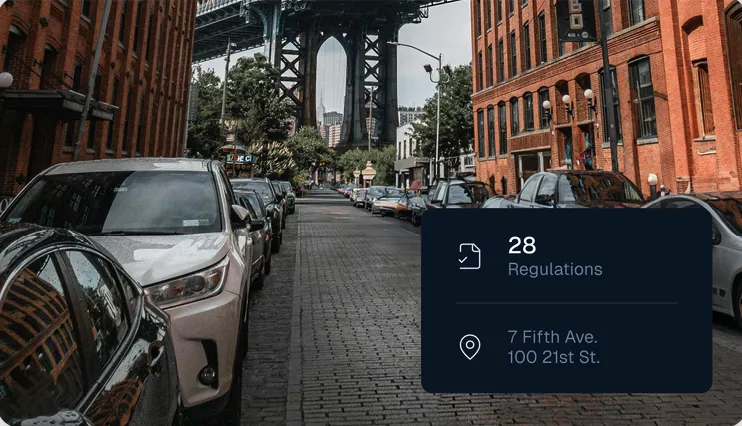
For years, cities have tried to keep up with the mess that new mobility brings – from scooters scattered on sidewalks to delivery vans double-parked in bike lanes. The vehicles keep changing, but the challenge stays the same.
How to manage public space when everything and everyone wants a piece of it?
Populus is showing that the real innovation isn’t happening only inside the vehicles, but also in how cities manage them. By treating the curb as a living system instead of static paint and signage, cities can finally make data-driven decisions about how their streets are used.
The curb is no longer just the edge of the road. It’s becoming the backbone of modern urban logistics where mobility, delivery, and infrastructure all intersect.
And as automation, electrification, and shared mobility keep reshaping city life, the ones using tools like Populus will be setting the rules for how the future moves.